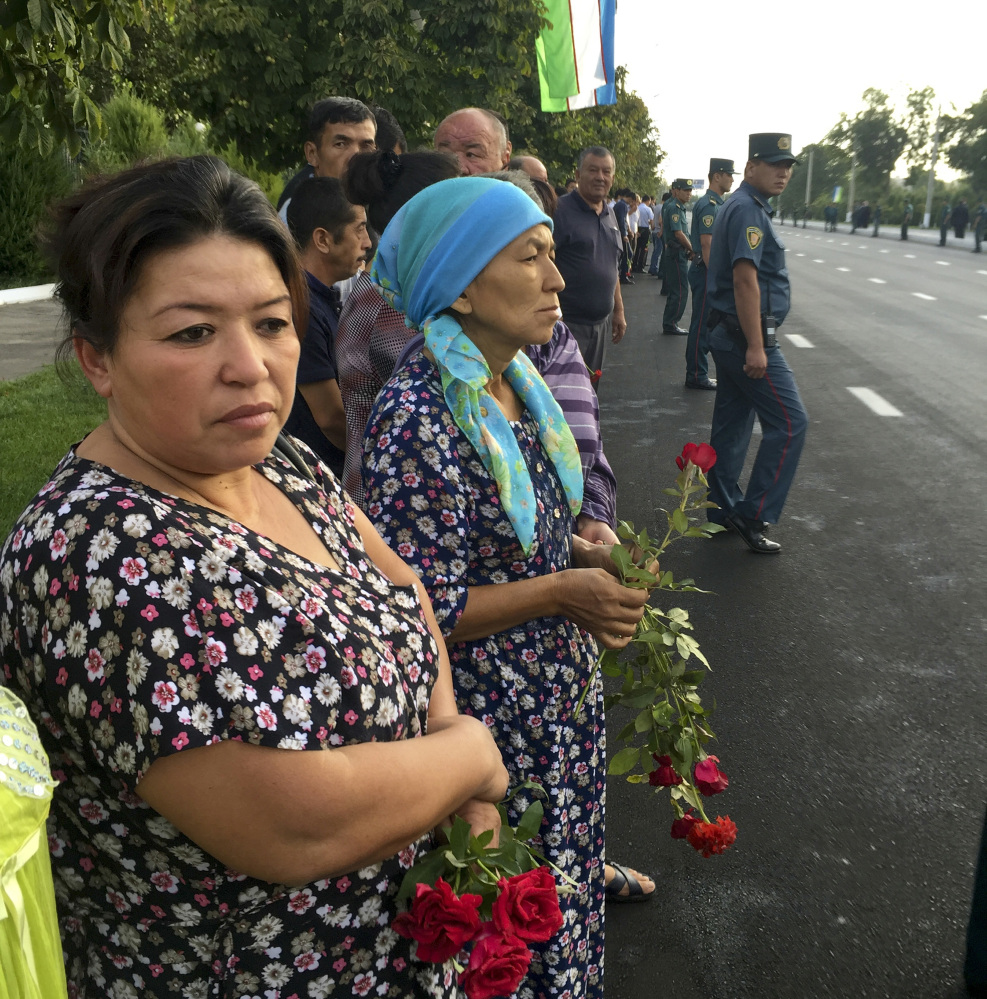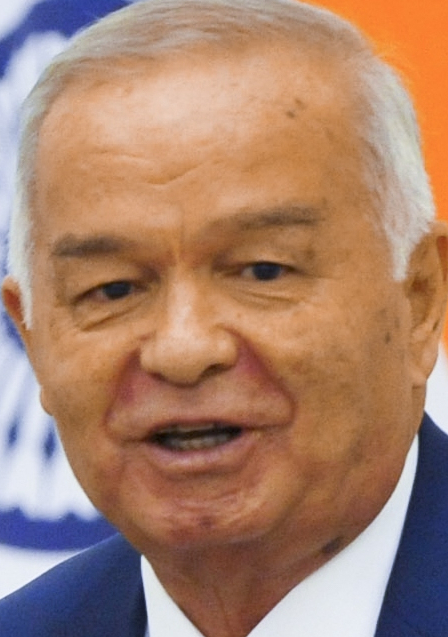MOSCOW – Uzbekistan’s widely criticized authoritarian leader Islam Karimov was hailed as a statesman and democrat by his government as he was laid to rest Saturday in the ancient silk road city of Samarkand.
The coffin of 78-year-old Karimov, whose death from a cerebral hemorrhage was announced Friday, was placed in the renowned Registan square, flanked on three sides by Islamic schools covered in intricate, colorful tiles and topped with aqua cupolas.
Thousands of men packed the square – women were excluded – to hear a mufti give a funeral prayer that said “Islam Karimov served his people.” The body was then taken to the Shah-i-Zinda necropolis, another architecturally significant site, for burial.
Karimov became the leader of Uzbekistan in 1989, when it was a Soviet republic, and held power with ruthless determination throughout all of Uzbekistan’s independence. He crushed opposition, repressed the media and was repeatedly denounced by activists abroad for human rights violations including killings and torture.
His Cabinet, however, said in a statement that Karimov “attained a high authority in the country and in the international community as an outstanding statesman, who has developed and implemented a deeply thought-out strategy of building a democratic constitutional state with a civil society and a market economy.”
Karimov cultivated no apparent successor, and his death raised concerns that the predominantly Sunni Muslim country could face prolonged infighting among clans over its leadership, something its Islamic radical movement could exploit.
Uzbekistan is ex-Soviet central Asia’s most populous country and borders Afghanistan, making it of strategic interest to Russia and the United States.
In a statement, President Obama said the U.S. remains committed to its partnership with Uzbekistan as the country “begins a new chapter in its history.”
Alexei Pushkov, head of the Russian parliament’s foreign affairs committee, retorted on Twitter that Obama “is mistaken if he thinks this new chapter will be written in Washington.”
“The death of Islam Karimov may open a pretty dangerous period of unpredictability and uncertainty in Uzbekistan,” Pushkov told the Tass news agency on Friday.
Given the lack of access to the strategic country, it’s hard to judge how powerful the Islamic Movement of Uzbekistan might be. Over the years, the group has been affiliated with the Taliban, al-Qaida and the Islamic State group, and it has sent fighters abroad.
Under the Uzbek constitution, if the president dies his duties pass temporarily to the head of the senate until an election can be held within three months.
Send questions/comments to the editors.




Success. Please wait for the page to reload. If the page does not reload within 5 seconds, please refresh the page.
Enter your email and password to access comments.
Hi, to comment on stories you must . This profile is in addition to your subscription and website login.
Already have a commenting profile? .
Invalid username/password.
Please check your email to confirm and complete your registration.
Only subscribers are eligible to post comments. Please subscribe or login first for digital access. Here’s why.
Use the form below to reset your password. When you've submitted your account email, we will send an email with a reset code.